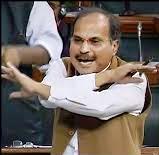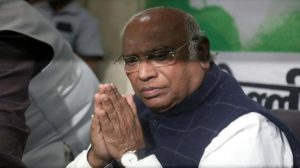Rahul Gandhi’s Apologies: A Recurring Theme
Rahul Gandhi, a prominent Congress leader and former party president, has issued several high-profile apologies, often under legal or political pressure. One significant instance was in 2019, when Gandhi apologized unconditionally to the Supreme Court for wrongly attributing the phrase “chowkidar chor hai” (watchman is a thief) to the court in the context of the Rafale deal controversy. The remark, aimed at Prime Minister Narendra Modi, was made during a campaign speech, but Gandhi’s claim that the Supreme Court had endorsed it drew a contempt petition from BJP MP Meenakshi Lekhi. The Supreme Court accepted Gandhi’s apology but cautioned him to be more careful, emphasizing the responsibility that comes with his position. Gandhi clarified that while he regretted misquoting the court, he would continue using the slogan against Modi, showing a strategic balance between contrition and defiance.

Another apology came after Gandhi’s 2013 remark during an election rally in Madhya Pradesh, where he claimed that Pakistan’s ISI was recruiting riot-affected youth post the Muzaffarnagar riots. The statement drew widespread criticism from opposition parties and even within Congress, with Jairam Ramesh suggesting Gandhi apologize to the Muslim community for potentially stoking communal tensions. Gandhi later clarified that his intent was to highlight divisive politics, not to offend. These incidents underline Gandhi’s tendency to make bold statements that require subsequent damage control, earning him a place in the “Mafiveer” narrative
Mallikarjun Kharge: Apologizing Amid Political Tensions
As Congress president and Leader of the Opposition in the Rajya Sabha, Mallikarjun Kharge has also had to navigate controversies requiring apologies. In December 2024, Kharge’s remarks in Parliament about the National Education Policy (NEP) were expunged after being deemed inappropriate, prompting an apology to diffuse tensions with the ruling BJP. Additionally, during a heated exchange in the Rajya Sabha in July 2024, Kharge’s comments referencing the caste system in response to Chairperson Jagdeep Dhankhar’s remarks led to a sharp rebuke. While Kharge did not formally apologize, his defense of his position and reference to Sonia Gandhi’s role in his leadership hinted at the sensitivity of the issue
Kharge’s apologies often stem from parliamentary conduct rather than public statements, reflecting his role as a seasoned leader tasked with maintaining decorum while countering the BJP’s narrative. His apologies, though less frequent than Gandhi’s, are strategic, aimed at preserving Congress’s credibility in legislative settings.

Jairam Ramesh: Regret Over Defamation
Congress General Secretary Jairam Ramesh, known for his articulate communication, issued an apology in 2020 for a 2019 defamation case involving remarks against Ajit Doval’s son, Vivek Doval. Ramesh had alleged that Vivek Doval ran a hedge fund linked to questionable financial activities, prompting a defamation suit. Ramesh’s apology was a calculated move to settle the case, reflecting his awareness of the legal and political repercussions of unverified claims. Additionally, Ramesh has played a clarifying role in controversies, such as after the 2025 Pahalgam terror attack, where he emphasized that only statements from Kharge, Gandhi, and authorized AICC office-bearers represented Congress’s official stance, indirectly addressing errant remarks by other leaders.
Ajoy Kumar: Sikkim Misstep
Ajoy Kumar, a Congress leader, apologized in 2025 for referring to Sikkim as a “neighboring country” during a public statement, a gaffe that sparked outrage from the BJP and Sikkimese citizens. The apology was issued swiftly to mitigate damage to Congress’s image in the Northeast, a region where the party seeks to regain ground. Kumar’s error, though unintentional, highlighted the sensitivity of regional identities and the need for precise communication in a diverse nation.
Adhir Ranjan Chowdhury: A Slip of the Tongue
Adhir Ranjan Chowdhury, Congress’s leader in the Lok Sabha, apologized in 2023 for referring to Finance Minister Nirmala Sitharaman as “Nirbala” (meaning weak or powerless) during a parliamentary debate. The remark, perceived as a personal jab, drew sharp criticism from the BJP, prompting Chowdhury to express regret to avoid escalating the controversy. Chowdhury also raised concerns about BJP MP Ramesh Bidhuri’s derogatory remarks against BSP MP Danish Ali in 2023, urging action from the Lok Sabha Speaker but stopping short of an apology himself, as the issue was external to Congress.
The ‘Mafiveer’ Narrative: Political Strategy or Misstep?
The frequency of these apologies raises questions about Congress’s communication strategy. The party’s leaders often make bold statements to capture attention, but the lack of vetting or clarity can lead to controversies. The Pahalgam terror attack case, where Kharge and Gandhi urged leaders to stick to the party line, underscores the challenge of maintaining a unified narrative. Congress’s internal diversity, while a strength, sometimes results in discordant voices, as seen when leaders like Vijay Namdevrao Wadettiwar apologized for remarks on the same attack that deviated from the official stance.
The “Mafiveer” tag, while satirical, oversimplifies the complex dynamics of political discourse in India. Apologies from Rahul Gandhi, Mallikarjun Kharge, Jairam Ramesh, Ajay Kumar, and Adhir Ranjan Chowdhury reflect a mix of legal necessity, political strategy, and genuine acknowledgment of errors. These incidents highlight the challenges Congress faces in balancing aggressive opposition with disciplined communication. As the party navigates a competitive political landscape, refining its messaging to minimize controversies while maintaining its assertive stance will be crucial. The “Mafiveer” label may sting, but it also underscores the scrutiny Congress faces as a major opposition force, where every word carries weight.





